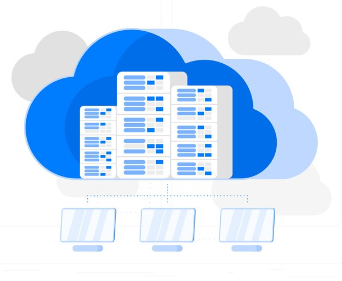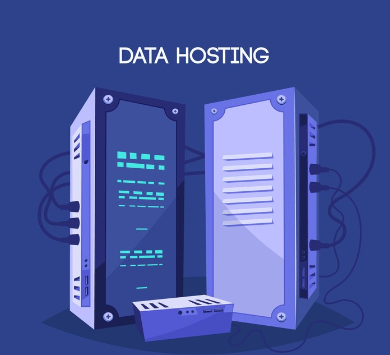QuickBooks on Cloud Server
QuickBooks is a renowned accounting software package developed and marketed by Intuit. It’s designed to help small and medium-sized businesses manage their finances efficiently, offering features for invoicing, payroll, expense tracking, and more.
In recent years, QuickBooks has embraced cloud technology, allowing users to access their data from anywhere with an internet connection.
This article explores the integration of QuickBooks with cloud servers, revolutionizing the way businesses handle their accounting tasks.
What is QuickBooks?
QuickBooks is a comprehensive accounting solution trusted by millions of businesses worldwide. It simplifies financial management by automating tasks such as invoicing, expense tracking, and tax preparation.
Whether you’re a freelancer, a startup, or an established enterprise, QuickBooks offers customizable features to suit your specific needs.
What is a Cloud Server?
A cloud server, also known as a virtual server or cloud hosting, is a powerful computing resource that operates in a virtualized environment.
Unlike traditional physical servers, cloud servers are hosted and managed by third-party providers, offering scalability, reliability, and accessibility.
By leveraging cloud technology, businesses can eliminate the need for on-premises hardware and infrastructure, reducing costs and enhancing efficiency.
Benefits of QuickBooks on Cloud Server
Accessibility Anytime, Anywhere
With QuickBooks on a cloud server, users can access their financial data from any device with an internet connection.
Whether you’re in the office, at home, or on the go, you can securely log in to your QuickBooks account and manage your finances in real time.
This flexibility empowers businesses to stay productive and responsive in today’s fast-paced digital landscape.
Enhanced Security Features
Cloud servers offer advanced security features to protect sensitive financial data. These include encryption protocols, firewalls, and multi-factor authentication, ensuring that your information remains safe from unauthorized access and cyber threats.
Additionally, reputable cloud hosting providers invest in regular security updates and compliance certifications to maintain the integrity of their infrastructure.
Scalability and Flexibility
One of the key advantages of QuickBooks on a cloud server is scalability. As your business grows, you can easily scale your computing resources up or down to meet changing demands.
Whether you need additional storage space, processing power, or user licenses, cloud hosting providers offer flexible solutions that align with your evolving requirements.
This scalability eliminates the need for costly hardware upgrades and allows businesses to adapt quickly to market trends.
Choosing the Right Cloud Hosting Provider
Factors to Consider
When selecting a cloud hosting provider for QuickBooks, several factors should be taken into account to ensure a seamless experience.
Reliability and Uptime
Reliability and uptime are critical considerations when choosing a cloud hosting provider. Look for providers with a proven track record of uptime and performance, backed by Service Level Agreements (SLAs) guaranteeing reliability.
Data Backup and Recovery
Data backup and recovery mechanisms are essential for protecting your financial information against loss or corruption. Choose a hosting provider that offers robust backup solutions, including regular data snapshots and off-site replication.
Customer Support
Responsive and knowledgeable customer support is indispensable when dealing with technical issues or inquiries.
Prioritize providers that offer 24/7 support via multiple channels, such as phone, email, and live chat, to ensure prompt resolution of any issues that may arise.
Setting Up QuickBooks on Cloud Server
Selecting the Right Hosting Plan
Before setting up QuickBooks on a cloud server, it’s essential to choose the right hosting plan that aligns with your business needs and budget. Consider factors such as storage capacity, processing power, and user scalability when evaluating different plans.
Installation Process
The installation process for QuickBooks on a cloud server may vary depending on the hosting provider and the chosen plan.
Typically, providers offer step-by-step guides or automated installation scripts to streamline the setup process and minimize downtime.
Integration with Existing Systems
Integrating QuickBooks with existing systems and workflows is crucial for maximizing efficiency and data accuracy.
Whether you’re migrating from an on-premises solution or integrating with other cloud-based applications, ensure compatibility and seamless data flow between systems.
Optimizing Performance on QuickBooks Cloud
Resource Allocation and Management
Effective resource allocation and management are essential for optimizing performance on the QuickBooks cloud. Monitor resource usage, such as CPU, memory, and disk space, and adjust allocation as needed to maintain optimal performance levels.
Regular Software Updates
Keep QuickBooks and associated software up to date with the latest patches and updates to ensure optimal performance and security.
Cloud hosting providers often automate software updates to minimize downtime and ensure compatibility with the latest features and enhancements.
Utilizing Add-ons and Extensions
Explore add-ons and extensions that complement QuickBooks functionality and enhance productivity.
Whether it’s industry-specific integrations, reporting tools, or workflow automation solutions, leveraging add-ons can streamline processes and unlock new capabilities.
Data Security and Privacy Measures
Encryption and Data Protection
Protect sensitive financial data with encryption protocols and data protection mechanisms. Ensure that data transmitted to and from the cloud server is encrypted using industry-standard encryption algorithms to prevent unauthorized access or interception.
User Access Controls
Implement user access controls to restrict access to sensitive financial information based on role-based permissions.
Define user roles and permissions within QuickBooks to limit access to specific features and data, reducing the risk of unauthorized actions or data breaches.
Compliance with Regulations (GDPR, HIPAA, etc.)
Maintain compliance with relevant regulations and industry standards, such as GDPR (General Data Protection Regulation) and HIPAA (Health Insurance Portability and Accountability Act).
Choose a cloud hosting provider that adheres to strict compliance requirements and offers features such as data residency options and audit trails to support regulatory compliance efforts.
Cost Considerations and Pricing Models
Comparison of Pricing Plans
Compare pricing plans from different cloud hosting providers to find the most cost-effective solution for your business.
Consider factors such as monthly fees, usage-based pricing, and additional charges for add-on services or storage upgrades when evaluating pricing models.
Hidden Costs to Watch Out For
Beware of hidden costs associated with cloud hosting, such as data transfer fees, storage overage charges, and premium support options.
Read the fine print of service agreements carefully and inquire about any potential hidden costs before committing to a hosting provider.
Return on Investment (ROI) Analysis
Conduct a thorough ROI analysis to assess the financial benefits of migrating QuickBooks to the cloud. Consider factors such as cost savings, productivity gains, and scalability benefits when calculating the potential return on investment over time.
Migration to QuickBooks Cloud
Planning and Preparation
Plan and prepare for the migration to QuickBooks cloud by assessing your current infrastructure, identifying migration dependencies, and defining migration objectives and timelines.
Develop a comprehensive migration plan that addresses data migration strategies, testing procedures, and contingency measures to minimize disruption to business operations.
Data Migration Strategies
Choose the right data migration strategy based on your existing data environment and migration goals.
Whether it’s a one-time bulk migration, a phased migration approach, or a hybrid migration model, it ensures data integrity and consistency throughout the migration process.
Testing and Validation
Thoroughly test and validate the migrated data and applications to ensure compatibility, accuracy, and performance. Conduct user acceptance testing (UAT) and performance testing to identify and address any issues or discrepancies before finalizing the migration.
Best Practices for Using QuickBooks on Cloud Server
Regular Backups and Data Maintenance
Data integrity is paramount in the realm of financial management. Implementing regular backups and data maintenance routines safeguards against data loss due to unforeseen circumstances such as hardware failures or security breaches.
Proactive data management practices ensure business continuity and mitigate risks associated with data corruption or loss.
Training and Education for Users
Empowering users with the requisite knowledge and skills is instrumental in maximizing the utility of QuickBooks on Cloud Server.
Comprehensive training programs familiarize users with the nuances of QuickBooks functionality and best practices for navigating the Cloud Server environment. Continuous education ensures proficiency and fosters a culture of innovation and efficiency.
Monitoring Performance Metrics
Vigilant monitoring of performance metrics is indispensable for preempting potential bottlenecks and optimizing resource utilization.
By tracking key performance indicators such as response time, throughput, and error rates, businesses can proactively identify areas for improvement and fine-tune configuration parameters to enhance the overall performance of QuickBooks on Cloud Server.
Conclusion
In conclusion, the convergence of QuickBooks and Cloud Server technology heralds a paradigm shift in financial management practices.
The myriad benefits, including enhanced accessibility, fortified security, and unparalleled scalability, position QuickBooks on Cloud Server as a cornerstone of modern business operations.
By adhering to best practices and conducting thorough cost-benefit analyses, businesses can unlock the full potential of QuickBooks on Cloud Server and propel themselves towards sustained growth and success.






